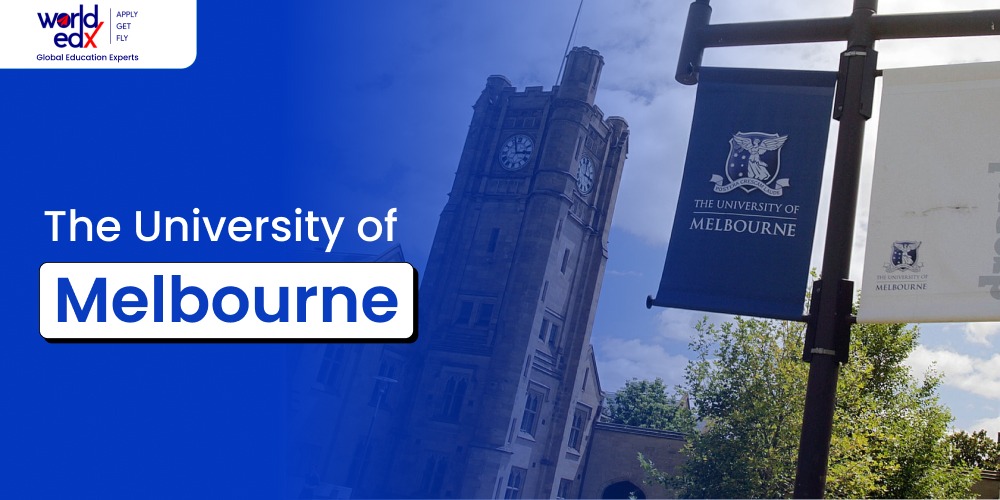The University of Sydney is the oldest in Australia and consistently ranks in the top 20 universities worldwide. The university has eight faculties and schools, offering various undergraduate and postgraduate degrees. Established in 1850, the University of Sydney is a public university. Located in the vibrant city of Sydney, the university’s campus spans 72 hectares, making it the largest university campus in Australia. This main campus is situated in Camperdown/Darlington.
The university offers undergraduate, postgraduate, and research programs across various disciplines, including arts and social sciences, business, engineering and IT, health sciences, science, law, architecture and more. With over 400 study areas, students can choose their education according to their interests and career goals. The university has the following campuses:
- Camperdown/Darlington Campus
- Camden Campus
- Westmead
- Sydney Conservatorium of Music
- Surry Hills Campus
- Mallett Street Campus
- Sydney Medical School
- 133 Castlereagh Street, CBD
- Sydney College of the Arts
The University of Sydney Ranking

The University of Sydney has continuously maintained its position as one of the best universities in the world, reflecting its dedication to student success, innovative research, and excellence in education. While specific rankings may vary from year to year due to changes in methodology or performance indicators, the University of Sydney’s consistent presence among the world’s top universities highlights its reputation as a leading institution of higher learning globally.
| Ranking Organization | Rank (2024-2025) |
| QS World University Rankings | 19 |
| Times Higher Education World University Rankings | 60 |
| US News Best Global Universities | 28 |
| Academic Ranking of World Universities (ARWU) | 73 |
| QS Graduate Employability Rankings | 4 |
Popular University of Sydney Courses
For more than 30 University of Sydney Courses are ranked among the top 50 universities in the world. The courses mentioned below are top-rated and have excellent rankings in the world:
| Accounting and finance | Clinical medicine | Law |
| Archaeology | Communication and Media Studies | Linguistics |
| Agricultural Sciences | Computer Science and Engineering | Medicine |
| Architecture and the Built Environment | Development studies | Modern Languages |
| Artificial Intelligence | Education | Metallurgical Engineering |
| Anatomy and Physiology | Engineering – Civil and Structural | Nursing |
| Anthropology | Engineering – Electrical and Electronic | Oncology |
| Arts and Humanities | English Language and Literature | Pharmacy and Pharmacology |
| Business Administration | Geography | Philosophy |
| Classics & Ancient History | History | Politics and International Studies |
| Psychology | Space Science | Transportation Science and Technology |
| Public Health | Sports-related Subjects | Veterinary Sciences |
| Social Policy and Administration | Surgery | |
| Sociology | Telecommunication Engineering |
Intakes Open
Applications usually become available two years before the start of the course for international students. The following information contains the date of closing:
| Semester 2 (Aug) | 25 June 2025 |
Start dates for Semesters (2024-2025)
| Semester 2 | 29 July 2025 |
| Semester 1 | 24 February 2025 |
| Semester 2 | 4 August 2025 |

Tuition Fees for International Students 2025
The fee structure can vary depending on factors such as the level of study (undergraduate or postgraduate), the specific program or course and whether you are a domestic or international student. Here’s an overview of the fees according to the courses:
| Sl No. | Course | Undergraduate | Postgraduate | Postgraduate research |
| 1 | Architecture, design and planning | $48,500 | $44,000 – $47,000 | $47,500 |
| 2 | Business | $52,000 | $53,000 – $56,500 | $53,500 |
| 3 | Arts and Social Sciences | $45,500 – $52,000 | $45,000 – $52,500 | $47,500 |
| 4 | Education and Social Work | $52,000- $56,000 | $49,500 | $47,500 |
| 5 | Engineering and Computer Science | $56,000 | $53,000 | $53,500 |
| 6 | Law | $52,000 | $56,500 | $53,500 |
| 7 | Medicine and Health (Dentistry) | $56,000 | $77,500 | $53,500 |
| 8 | Medicine and Health (Health sciences) | $56,000 – $61,000 | $56,000 | $53,500 |
| 9 | Medicine and Health (Medicine and public health) | N/A | $56,500 | $53,500 |
| 10 | Medicine and Health (Nursing) | $45,500 | $47,000 | $53,500 |
| 11 | Medicine and Health (Pharmacy) | $56,000 | $56,500 | $53,500 |
| 12 | Music | $45,500 – $46,500 | $43,500 | $43,000- $47,500 |
| 13 | Science | $52,000 – $56,000 | $53,000- $56,500 | $53,500 |
Why The University of Sydney?
Choosing a university is a big decision and the University of Sydney certainly has a lot to offer. Here are some key reasons why you can consider it:
Industry Connections and Career Opportunities
Strong industry connections and an extensive alumni network open doors to a wealth of career opportunities for its graduates. From internships and work placements to networking events and career fairs, the university provides numerous paths for students to connect with leading employers and gain valuable industry experience. Whether you’re pursuing a career in finance, technology, healthcare, or the arts, partnerships with top companies and organizations provide a valuable foundation for launching your career and making a meaningful impact in your chosen field.
Location and Lifestyle
Situated in the heart of Sydney, one of the world’s most livable and culturally diverse cities, The University of Sydney offers students a unique lifestyle experience. With its stunning campus, vibrant arts scene, and endless opportunities for recreation and entertainment, Sydney provides the perfect setting for your university journey. From exploring iconic landmarks like the Sydney Opera House and Bondi Beach to discovering hidden gems in trendy neighborhoods, Sydney offers a dynamic and exciting environment for students to live, learn, and succeed.
Talk to an expert for FREE Counselling
Interdisciplinary Approach to Education
The University takes an interdisciplinary approach to education, encouraging students to explore diverse perspectives and integrate knowledge from multiple disciplines. Whether you’re studying science, humanities, or business, you’ll have the opportunity to collaborate with students and faculty from different fields, gaining a holistic understanding of complex issues and developing innovative solutions to real-world problems. This interdisciplinary approach not only enriches the learning experience but also prepares students to navigate the complexities of a rapidly changing world and make meaningful contributions to society across diverse domains.
Commitment to Sustainability
As a leader in sustainability research and practice, The University of Sydney is dedicated to creating a more sustainable future for our planet. From reducing carbon emissions to promoting biodiversity conservation, the university integrates sustainability principles into its teaching, research, and operations. Whether you’re studying environmental science, urban planning, or business sustainability, the University equips students with the knowledge and skills to address pressing environmental challenges and drive positive change in their communities and beyond.
University Statistics
| Number Of FTE Students | International student percentage | Student gender ratio(Male & Female) | Students per staff |
| 53079 | 51% | 57 F : 43 M | 27.5 |
| Total Students | International Students | Total Faculty Staff |
| 47,344 | 29,015 | 3188 |
| UG Students | PG Students | UG Students | PG Students | Domestic Staff | International Staff |
| 63% | 37% | 54% | 46% | 51% | 49% |
Frequently Asked Questions (FAQs)
What research areas is the University of Sydney known for?
The University of Sydney is known for its research excellence across a wide range of fields, including health and medicine, engineering and technology, sustainability and environmental sciences, social sciences, humanities, business, and the arts.
How diverse is the student body at the University of Sydney?
The University of Sydney prides itself on its diverse student community, with students from over 130 countries represented on campus. This diversity enriches the academic and cultural experience, fostering a global perspective and cross-cultural understanding.
How does the University of Sydney support career development and job placement?
The Career Development Center provides comprehensive support and resources to help students explore career options, develop job-search strategies, gain work experience through internships, and connect with employers through networking events and career fairs.
What extracurricular activities are available on campus?
The University of Sydney offers a wide range of extracurricular activities, clubs and societies catering to diverse interests. Whether you’re interested in sports, arts, community service, or cultural exploration, there’s something for everyone. Students can join sports teams, participate in cultural festivals, volunteer for charitable causes or even start their own clubs.
Can students participate in research projects as undergraduates?
Yes, undergraduate students in Sydney have opportunities to engage in research projects under the guidance of faculty mentors. These experiences provide valuable hands-on learning opportunities and enhance students’ academic and professional development.






